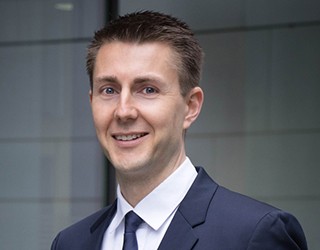
Interview with Dr. Robin Bürger on the topic of “crowdFANding - Südkurve bleibt!“
more info
Interview with Dr. Robin Bürger on the topic of “crowdFANding - Südkurve bleibt!“
more info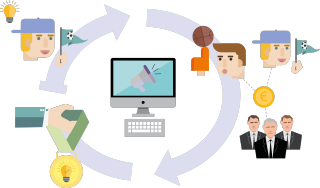
With 2099 supporters from 35 countries, a total of €155,000 pledged and the Innovationspreis Thüringen people's choice award, the pilot campaign of crowdFANding was a roaring success. On Sunday, 10 September, the follow up project crowdFANding II concluded. The focus once again was co-determination in the sports arena through crowdfunding, this time with Fanprojekt Mainz e.V. which was aimed at the building of a fan clubhouse for the active fans of this Bundesliga club. The campaign also hoped to achieve a world record and a respective entry into the Guinness Book of Records as the sports-related crowdfunding project with the most supporters. In an interview, Erik Ackermann and Dr. Robin Bürger from the Fraunhofer Center for International Management and Knowledge Economy IMW's Innovation Financing Unit talk about providing scientific support to the campaign and the overall positive results.
more info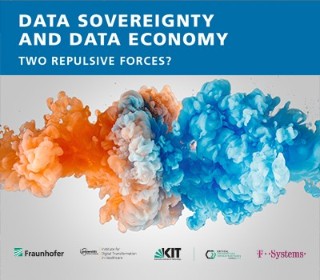
The position paper "Data Sovereignty and Data Economy - Two Repulsive Forces?" was published. How do data sovereignty and data economy interact? This question is explored in the position paper of Fraunhofer IMW and Fraunhofer ISST.
more info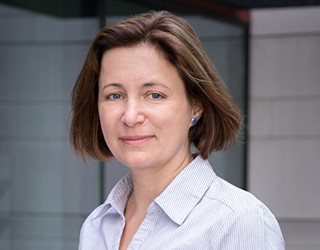
In the SPARCS project, seven cities, including the city of Leipzig, are demonstrating in around 100 individual projects how individual buildings, blocks or districts can contribute to a sustainable and climate-neutral urban future with an intelligent energy system. They are using the methodological framework City Vision 2050, developed at Fraunhofer IMW in the Professionalization of Knowledge Transfer Processes unit, which supports the cities in aligning their urban transformation and energy system transformation with the goal of climate neutrality in the long term. In an interview, Nadja Riedel, head of the Leipzig SPARCS consortium in the Digital City Department of the City of Leipzig, and Annamaria Riemer, head of the Professionalization of Knowledge Transfer Processes unit, explain what City Vision Leipzig 2050 is and how it helps to achieve the goal of a climate-neutral city.
more info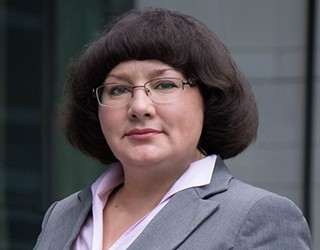
Through the “DiBBloK” joint project, an interdisciplinary research team is currently identifying drivers and obstacles to digitization processes in management and organizational structures involved in vocational training. Their aim is to develop starting points and potential for digital innovation across organizations. In the interview, Anzhela Preissler, head of the Professional Development and Competence Management Unit, and research fellow, Desirée Jörke, talk about current developments, initial findings and effects of Corona on the project.
more info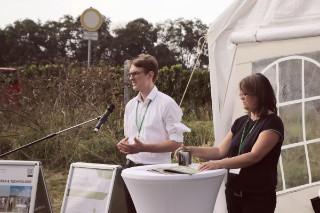
For a backcasting workshop in EXPRESS, members of the Professionalization of Knowledge Transfer Processes group at Fraunhofer IMW developed a new approach: Backcasting as a digital board game. We talked about creative workshop formats, pandemicßrelated digitalization, and gamification with Valentin Knitsch, who helped develop the format.
more info
Can we gaze into our crystal ball and predict the future? Using science rather than occultism, Fraunhofer researchers are looking into the future to identify scientific and technological trends for 2030. In order to use this knowledge systematically, they are developing a foresight tool that will assist researchers in establishing long-term perspectives. In an interview, Dr. Juliane Welz, Annamaria Riemer, and Inga Döbel from Fraunhofer IMW explain how their foresight tool works, what their focus is, and what will be possible with their results.
more info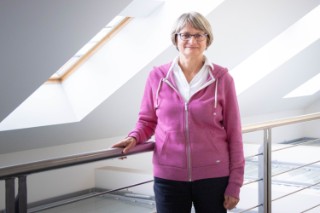
As part of the Fraunhofer-Gesellschaft's Cultural Heritage Research Alliance, Fraunhofer IMW deals with the social value of cultural heritage and its protection from the consequences of climate change. Dr. Johanna Leissner, founder of the research alliance and representative at the Fraunhofer EU office in Brussels, talks about the alliance's success and the need for improvement in the field of cultural heritage.
more infoProfessor Dr. Thorsten Posselt took up his appointment as the director of what is now called the Fraunhofer Center for International Management and Knowledge Economy IMW in Leipzig ten years ago, on 1 February 2008. Professor Dr. Thorsten Posselt, who is a business management and economics graduate and expert, initially headed the Fraunhofer-Gesellschaft's socio-economics institute, then called the Fraunhofer Center for Central and Eastern Europe (MOEZ), from 2006 onwards. The institute consolidated its expertise and range of services in 2015 with an international profile and under a new name, the Fraunhofer Center for International Management and Knowledge Economy IMW. As the head of the institute, Professor Posselt contributed considerably to the initiation of the associated change processes, the development of the institute profile and the strategic further development of this non-university based Fraunhofer-Gesellschaft research center in many decisive ways.
more info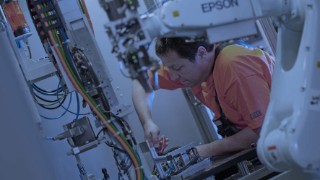
Spaces where humans and robots work together and are not separated from each other by partitions or protective fencing are referred to as collaborative human-robot work spaces. Currently, such work spaces can mainly be found in large-scale enterprises – even though small and medium-sized companies can also benefit from human-robot collaborations (HRC). A Fraunhofer IMW team headed by Anzhela Preissler, the head of the Professional Development and Competence Management Unit, Dr. Marija Radić, the head of the Price and Service Management Unit, and Dr. Sandra Dijk, an associate researcher with the Price and Service Management Unit, is involved in the collaborative project KUKoMo, which helps medium-sized manufacturing companies to establish HRC work spaces. KUKoMo is funded by the German Federal Ministry of Education and Research (BMBF).
more info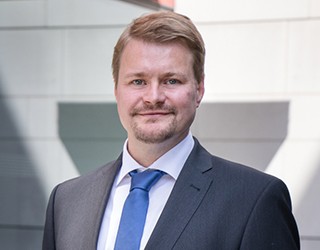
Dr. Steffen Preissler is head of the Fraunhofer IMW's Knowledge and Technology Transfer Division. In this interview, he explains how applied research can help small and medium-sized enterprises (SME) benefit more from international knowledge transfer.
more info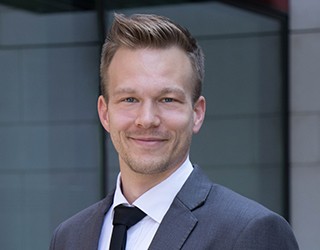
Dr. Friedrich Dornbusch serves as head of the Innovation Policy and Transfer Design Unit, created in 2017. In our interview, Dr. Dornbusch gave us some insights into his unit's main areas of focus, talked about its current research projects – and explained what scientific research and Thai boxing have in common.
more info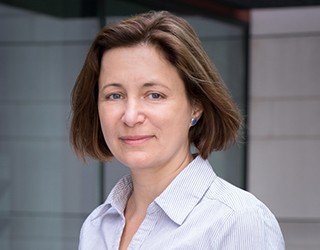
The team from the Professionalizing Transfer Processes Unit headed by Annamaria Riemer analyses the social, political and economic aspects of future technologies. They test knowledge transfer formats and organize cooperation processes between researchers and practitioners. In this interview, she describes what a scenario analysis must do in order to help stakeholders with their strategic alignments and how valuable international project management is for her work at the Fraunhofer IMW.
more info